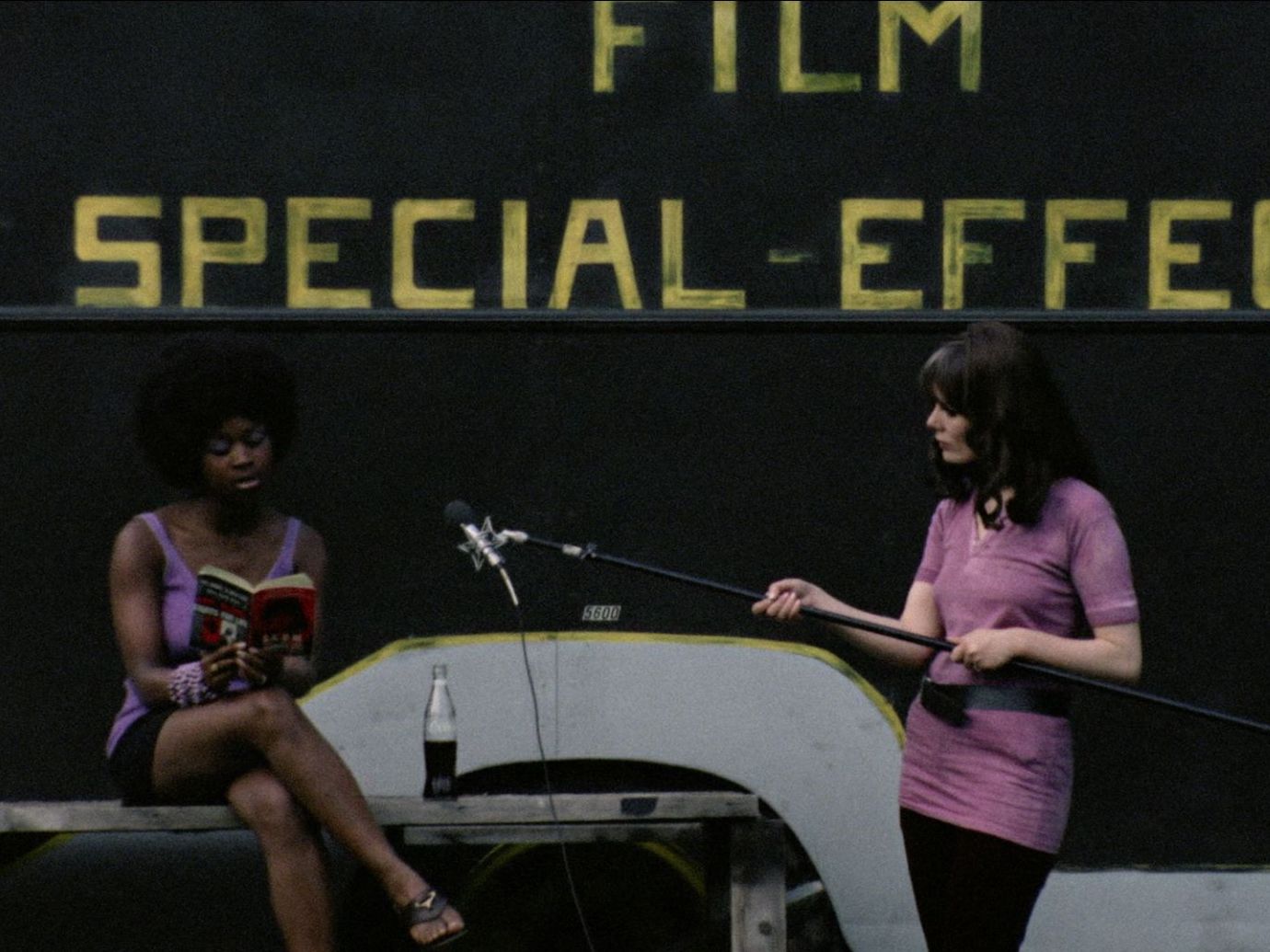
Ingemo Engström’s debut was made as a graduation film from Hochschule für Fernsehen und Film in Munich where she had studied since 1967. The film is structured around a road trip taken by a recently divorced doctor as she visits her female friends, driven by her mute lover. Conversations around life circumstances and meditations on the ideal love structure the film. Katrin Seybold, a documentary filmmaker, talks about the politics of relationships; actor Edda Köchl discusses collective living, and Marxist educator Illona Schult about raising children in a commune. (Courtisane)
EN
“Dark Spring is a film by a women and a film for women in which women say one thing above all: how they see it.”
Uwe Nettelbeck1
“Shot in color and on 35mm, the film strives for beauty and yet speaks of politics nonetheless. No one else from our generation attempted this connection of cinematographic beauty and contemporary politics.”
Harun Farocki2
“A film about women’s utopias of love. What it shows is how a woman experiences a sense of déjà-vu when she is at the end of a fixed relationship and the start of a utopian one. Encounters with other women are also shown, who reflect on their own relationships and on other possible forms of being together. Their testimonies remain authentic even when placed in a context that draws on staging.”
Ingemo Engström3
“At first purely fictitious, this film world I’d inhabited since my childhood and early adolescence in illusory fashion alone was also home to people who then accompanied me on my undertakings in its real-life counterpart. Some of them are no longer with us or I lost them in other ways. This flashed through my mind and provoked a stab of grief when Dark Spring (1970) screened again two years ago, and they asked me to bring some of the actors to the screening. But Katrin Seybold and Edda Köchl, the two most important ones who also belonged to the same generation as me, had already passed away. And with Dark Spring, that was particularly painful, because life had depicted itself to a certain extent in that film. A life in which working relationships became loving relationships, or vice versa, or both at the same time. And these relationships intervened into real life, they were life itself.”
Ingemo Engström4
Front Image: Courtesy of Deutsche Kinemathek
- 1Uwe Nettelbeck, cited on the website of Arsenal Berlin.
- 2Harun Farocki, cited on the website of Arsenal Berlin.
- 3Ingemo Engström, cited on the website of Arsenal Berlin.
- 4Ingemo Engström, “Years of Effective Dreams”.

